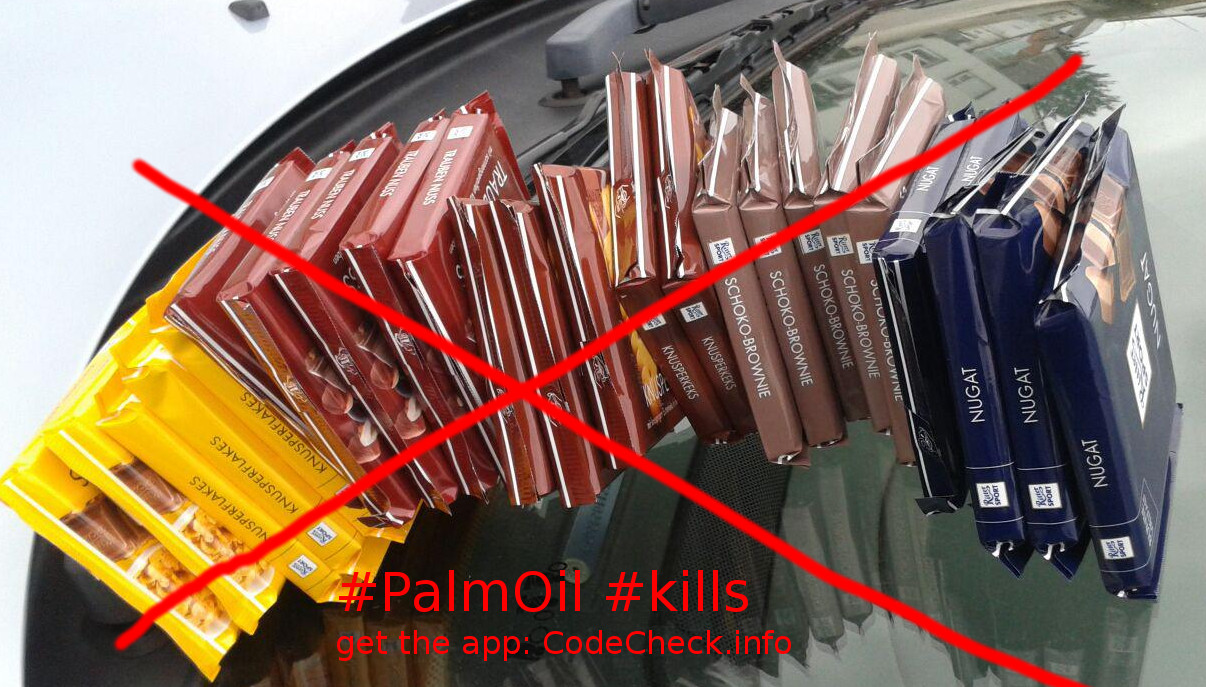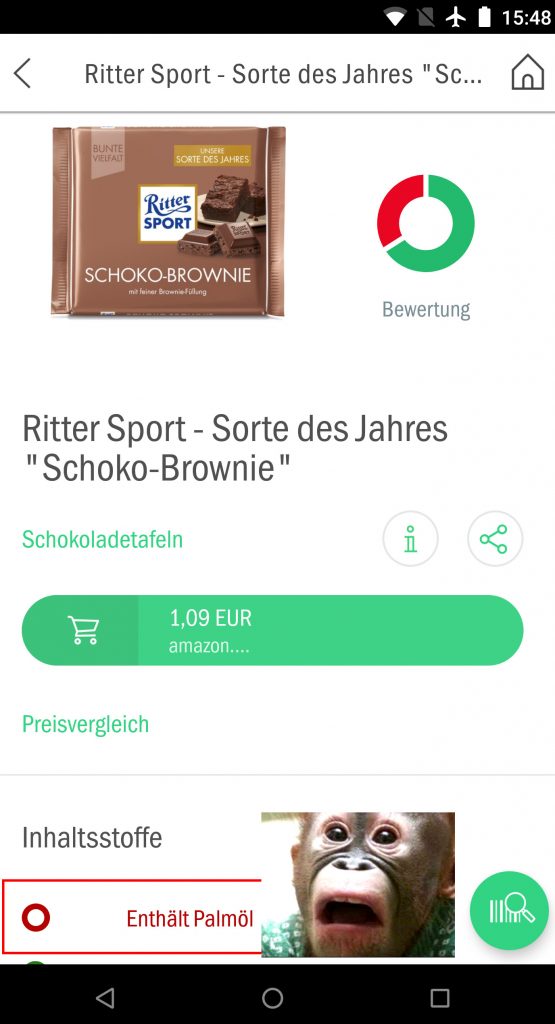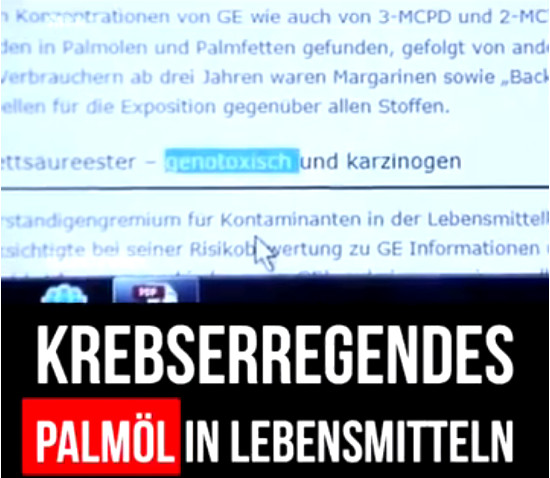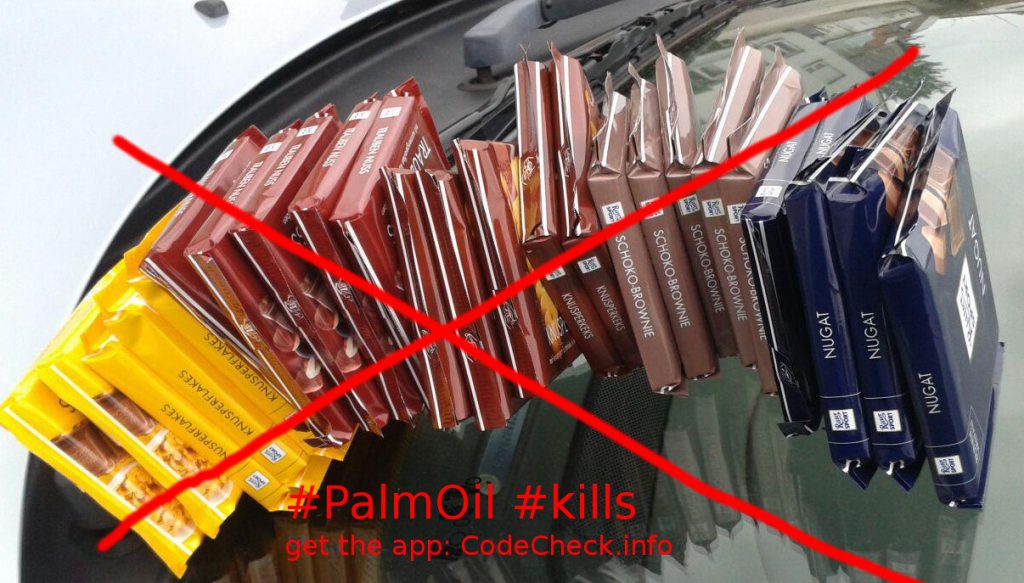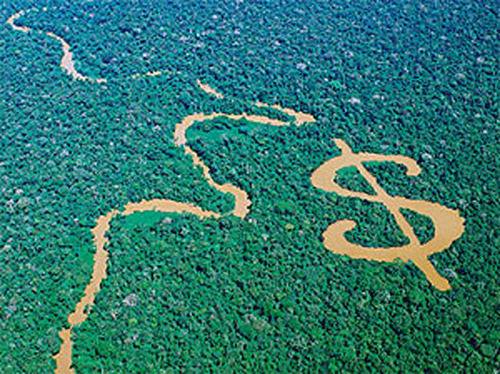„Für Herstellung von Schokoladenfüllungen gibt es daher bislang für uns keine Alternativen.“
VIELE RITTER SPORT SCHOKOLADEN SIND OHNE PALMÖL!
https://www.codecheck.info/product.search?q=ritter+sport&OK=Suchen
… aber nicht alle. *Uff* Gut. Kaufe ich halt nur noch diese 🙂
„Es gibt immer wieder die Anregung, statt Palmöl doch einfach Fette aus anderen Pflanzen wie Soja, Raps oder Sonnenblumen zu verwenden. Dazu muss man wissen, dass neben den schon beschrieben technischen, funktionalen und sensorischen Eigenschaften Palmöl einen ganz entscheiden Vorteil hat. Und das ist der Ertrag pro Fläche. Während Ölpalmen etwa 3,3 Tonnen Fett pro Hektar liefern, sind das bei Raps oder Sonnenblumen nur 0,7 und bei Soja sogar nur 0,4 t/ha. Der WWF hat 2016 in einer Studie gezeigt, dass der vollständige Ersatz von Palmöl durch andere Pflanzenfette erhebliche negative Folgen für die Umwelt hätte, weil der massiv höhere Flächenbedarf den Anstieg der Treibhausemissionen und die weitere Gefährdung vieler Tier- und Pflanzenarten zur Folge hätte.“
„So far, there are no alternatives for the production of chocolate fillings.“
…
„There is always the stimulation, instead of palm oil simply to use fats from other plants such as soybean, rapeseed or sunflowers.
In addition to the technical, functional and sensory properties already described, palm oil has a decisive advantage.
And that’s the yield per area.
While oil palm trees supply about 3.3 tons of fat per hectare, this is only 0.7 in rapeseed or sunflower and even 0.4 in soybeans/ha.
The WWF has shown in 2016 in a study (link here), that the complete replacement of palm oil by other vegetable fats, significant negative consequences for the environment, because of the massively higher demand for land is the increase in greenhouse gas emissions and the further endangerment of many animal and plant species.“
(Auto translated from: ritter-sport.de)
„The RSPO has been criticised by various sectors, especially the environmental NGOs. Issues include the impact of palm oil plantations on the orangutan population; destruction of tropical forest for the new oil palm plantations; the burning and draining of large tracts of peat swamp forest in Borneo, Malaysia. The fact that RSPO members are allowed to clear cut pristine forest areas, when there are large areas of grasslands available in Indonesia,[3] raises doubts about commitment to sustainability.[4]“ (src: Wikipedia.org)
even worse:
Glycidyl esters möglicherweise krebserregend / possibly cancerogen
can damage DNA – there is no save level – genotoxic
If you are an Expert this is for you: Risks-for-human-health-related-3-and-2-monochloropropanediol-(MCPD)-fatty-acid-esters-glycidyl-fatty-acid-food-EFSA-Panel-Chain-SCIENTIFIC-OPINION-ADOPTED-3-March-2016-doi-10.2903-j.efsa_.2016.4426.pdf
archive mirror / backup download: Risks-for-human-health-related-3-and-2-monochloropropanediol-MCPD-fatty-acid-esters-glycidyl-fatty-acid-food-EFSA-Panel-Chain-SCIENTIFIC-OPINION-ADOPTED-3-March-2016-doi-10.2903-j.efsa_.2016.4426.pdf
src: https://www.efsa.europa.eu/de/press/news/160503-0
Bitte Kontaktieren Sie Ritter Sport (2017: Net income
482 million euros), damit diese daran etwas ändern.
Niemand kann Schokolade genießen wenn:
- Regenwälder
- Klima und Orang-Utans dafür sterben müssen.
🙁 i was a big fan of these German chocolates.
Please contact Ritter Sport (2017: Net income
482 million euros) to do something about it – one can not enjoy chocolate if:
- Rainforests
- Climate
- and Orang Utans have to die for it.
„Sometimes I feel like I’m in the movie „Groundhog day“… For almost ten years, big consumer promised goods manufacturers, such as Mondelēz (Revenue US$25.896 billion (2017)) Nestlé (Revenue CHF91.439 billion (2018) = 2019-03-09: 90.69 Billion USD) and Unilever (Revenue Increase US$62.622 billion (2017)), to banish palm oil from rainforest destruction from their supply chains.And again and again we have proved to you that you are far from it“ (auto translated from: src: greenpeace.de)
„Manchmal komme ich mir vor wie im Film „Und täglich grüßt das Murmeltier“… Seit fast zehn Jahren haben große Konsumgüterhersteller wie Mondelēz, Nestlé und Unilever versprochen, Palmöl aus Regenwaldzerstörung aus ihren Lieferketten zu verbannen.
Und immer wieder haben wir ihnen nachgewiesen, dass sie weit davon entfernt sind“ (src: greenpeace.de)
Über Palmöl:
„Palmöl ist das billigste und meistverwendete Pflanzenöl weltweit. Der grösste Anteil wird für Nahrungsmittel verwendet (73,5 %), gefolgt von Konsumgütern wie z.B. Kosmetika, Seife, und Waschmittel, (21,5%) und der kleinste Anteil für Agrotreibstoffe (5%) (Quelle: USDA 2007). In den letzten Jahren ist die Nachfrage für Palmöl enorm gestiegen.
Deklarationspflicht in Lebensmitteln
Ab 2016 müssen in der EU Lebensmittel die Palmöl enthalten entsprechend deklariert werden.
Für Kosmetika gibt es aber noch keine Deklarationspflicht.
In Kosmetika gibt es viele Begriffe, hinter denen sich Bestandteile der Ölpalme verstecken können, wie beispielsweise Sodium palmate oder Elais guineensis.
Ausserdem können viele chemischen Rohstoffe wie beispielsweise Fettsäuren, sowohl aus der Ölpalme wie auch aus anderen Pflanzen hergestellt werden.
Dies macht es fast unmöglich, den Kauf von Palmprodukten ganz zu vermeiden. Auch Codecheck.info kann deshalb nicht bei allen Produkten wissen, ob sie Bestandteile der Ölpalme enthalten.“
About palm oil:
„palm oil is the cheapest and most widely used vegetable oil worldwide.
The largest share is used for:
- food (73,5 %),
- followed by consumer goods such as
- cosmetics
- soap, and
- detergent, (21.5%)
- and the smallest share for agro-fuels (5%) (source: USDA 2007).
In recent years, demand for palm oil has risen enormously.
Declaration obligation in food products from 2016 onwards, food products containing palm oil must be declared in the EU accordingly.
However, there is no obligation to declare cosmetics.
In cosmetics, there are many terms behind which components of the oil palm can hide, such as Sodium palmate or Elais guineensis.
In addition, many chemical raw materials such as fatty acids, both from the oil palm as well as from other plants can be produced.
This makes it almost impossible to completely avoid the purchase of palm products.
Also Codecheck.info therefore, it is not possible for all products to know whether they contain components of the oil palm.“
trotzdem: Get the App
& Scan Your Products BarCode, it is super easy and helps you find good alternatives:
https://www.codecheck.info/
Links:
Without Palmoil: https://generation-nachhaltigkeit.de/apfelstrudel-bayerische-art-ohne-ei/
CarGill’s destroying Amazonas to plant Soy goes to McDonnalds Chicken Mc Nuggets
